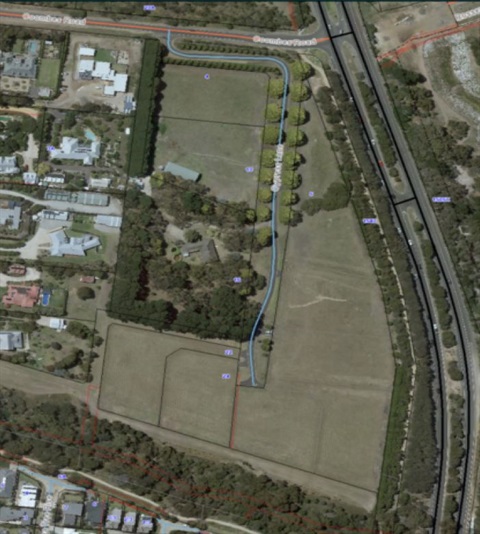Divercity went on patrol with Animal Management Officer Elle. As she explains, her role requires plenty of animal – and people – skills.
They say never work with children or animals but Port Phillip Council Animal Management Officer Elle wouldn’t have it any other way.
From New Zealand, her previous roles include working as a veterinary nurse and senior animal shelter attendant as well as an animal management officer for a NZ council. “I am animal mad. I was always the crazy animal kid gathering up animals.”
In search of a new challenge, Elle joined our Council in January this year. She sees her role as helping pets and people share the City as safely as possible at a time when both populations are growing. As one of Victoria’s most densely populated municipalities, this is placing increasing demands on amenity and access to popular open spaces.
Her work is varied, with Elle regularly witnessing everything from happiness to heartbreak – sometimes in one shift. It’s a delicate balance between education and enforcement and emotions can run high.
“There are definitely dog lovers, cat lovers, people who either don’t like animals or are scared by them due to trauma such as a dog attack and people whose pets are their lives. So when conflicts arise, it’s about how can we help pet owners and non-pet owners to live in harmony,” she observes.
Barking dogs are among these pressure points, with post-lockdown life stressing out many pooches (a Barking Dog Management Kit can be picked up from St Kilda Town Hall or downloaded here https://www.portphillip.vic.gov.au/media/aoxd0nq3/barking-dog-management-kit-2020.pdf. – is it worth hyperlinking this?
“There’s lots of separation anxiety, some dogs completely flip out when there is suddenly no-one at home – barking, pacing or being destructive”. Frustrated dogs barking in apartments after their “walkies” have decreased are another pandemic related problem.
When Animal Management Officers receive a barking complaint, they establish if there is an issue and provide advice as a first step. A canine unprepared for their owner returning to the workplace can benefit from a range of actions, from more exercise to training and enrichment tools.
During the shift, Elle visits a home after a caller has complained about a barking dog. She is always alert on duty “as you never know what to expect from people or animals”. In this case it’s a pint-size senior rescue dog with a big personality, whose new owner jokes has “small dog syndrome”. The owner is friendly and listens to Elle’s advice as the cute “culprit” alternates between trotting up for pats and barking at passing dogs. Time will tell if Elle needs to make a return visit.
Investigating dog attacks is a priority for the animal management team. “I have five on the go at the moment with three of them serious,” Elle says. This detailed research forms the foundation of the prosecution case when a serious attack is brought to court. She stops off at a home to talk to the owner of a dog alleged to have attacked another dog.No-one is there so Elle leaves her business card. If there is no follow-up call, she will be back.
While many Port Phillip pet owners are responsible, Elle says some become defensive when approached about complaints or during patrol checks. “We understand there is emotion involved, it’s their baby. Animals can get people through some pretty dark times.”
The line is crossed when defensiveness turns to verbal abuse. “We do cop a lot of verbal abuse, both in public and over the phone. It shouldn’t be normal but it is for us, even when it shouldn’t be.”
She advises dog owners to seek help before any troubling pet behaviour escalates. “We want to keep everyone happy and safe, including the animals. This is why we do enforcement – we don’t want your dog to get out and be run over or have to seize them if they bite someone.”
Following on-leash rules is another way of reducing the chances of an incident. It’s not uncommon to hear a dog owner blithely saying their pet is friendly when it runs to greet other dogs or people. A friendly dog bounding up to a less social leashed dog, however, can result in vet and doctor bills.
The patrol includes a visit to St Kilda Botanical Gardens, which has entrance signs stating that dogs must be leashed. Animal management officers are used to seeing dog owners entering with ball throwers for off-leash antics despite the signage, which sparks complaints from picnickers or older people concerned about being literally bowled over. There’s a few people dotted about, including a man feeding a flock of greedy pigeons, with one perched on his head.
Elle does a routine check with a man walking a dog which is not wearing a registration tag. The man is impatient and questions why she needs this information, at one point saying he feels harassed. Elle politely reiterates the reasons and scans the dog for a microchip. When back at the Town Hall, she will check the information and whether the dog is registered. Further along, a woman quickly clips a leash on her pooch when she spots Elle. She is apologetic, admitting the leash was off “as it’s so quiet” as the dog enjoys a relaxing roll on the ground. Data from a microchip scan will be checked as the owner is unsure whether the dog registration is up to date.
Microchips are also crucial when Elle needs to play pet detective to reunite lost pets with their distraught owners.








